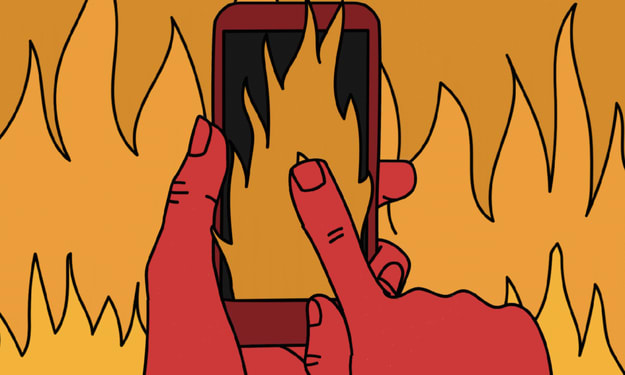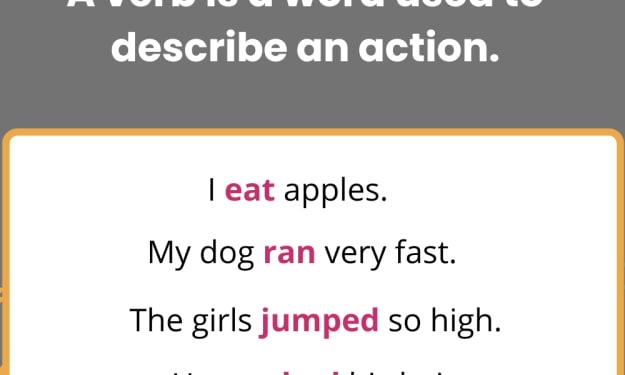What if you dont´t eat
Understanding the Effects and the Path to Recovery

You have made the decision to embark on a hunger strike, pledging to abstain from consuming any food for an extended period of time, possibly lasting for days or even weeks. The challenging aspect of this endeavor is that with each passing day, the situation will progressively deteriorate. By the time you reach the end of your hunger strike, you will have transformed into a mere shell of the person you once were. On the day you cease eating, you take your final bite of a delectable meal. This will mark the conclusion of your intake of food for several weeks. As you chew, your teeth break down the food into smaller pieces, while saliva and spit aid in lubricating the masticated food, facilitating easier consumption. When you swallow, the muscles in your throat expand and contract, propelling the food down into your stomach. This process, known as peristalsis, enables you to swallow even if you find yourself in an inverted position. Ironically, it is also the mechanism that allows you to vomit when reversed. Once the food reaches your stomach, the acids present within it begin to break down the food into its fundamental components, with glucose being one of the most crucial molecules. Glucose is a sugar molecule that your body utilizes to generate energy. It can be argued that it is the most vital molecule you acquire through eating. While there are other essential nutrients and vitamins obtained from your food, the primary objective is to break down everything you consume into glucose, enabling the mitochondria in your cells to utilize it for energy production. Without this process, your survival would be impossible. In the days to come, your body will yearn for glucose above all else, as you will soon discover. The food present in your stomach is disintegrated by the acid it contains. Some of the molecules permeate through the lining of your stomach and enter your bloodstream, while others are released into your intestines, where they will traverse approximately 20 feet of tubes. It is within the intestines that the majority of the nutrients from your food are absorbed into the bloodstream, while waste is transported to your bowels for elimination through defecation. 6 hours after you cease eating, your body has fully digested the food from your last meal. Although some nutrients remain in your bloodstream, the glucose from that meal has been almost entirely utilized. Consequently, your brain signals your body to feel hungry, as it requires more glucose for energy production. This hunger sensation is essentially a ploy by your brain to prompt you to consume more food. However, since you have chosen to refrain from eating, these signals remain unheeded. At this stage, you may begin to feel irritable or experience what is commonly referred to as being "hangry." The mood shift that many people undergo when hungry is due to the brain instructing the stomach to release hormones like ghrelin, which induces feelings of hunger and anxiety. This can lead to irritability and grouchiness. After several hours without food, individuals may exhibit a short temper, mood swings, and heightened emotions, all stemming from the body's need for additional glucose. 1 day after you stop eating, upon waking up from a restful night's sleep, you may notice biological changes taking place within your body. Surprisingly, you might feel more energetic than the previous day. While you were asleep, your body worked to conserve energy, and upon awakening, it draws upon any remaining glucose in your bloodstream to sustain your bodily functions. It has been a full day since your last meal, causing your body to shift from feeling good to sluggish and miserable. The energy you saved up is slowly draining away. Staying hydrated by drinking plenty of water is crucial, as while you can survive weeks without food, dehydration could lead to death within days. By avoiding juices and soda, you are not replenishing your glucose supply, and although water quenches your thirst, it does not provide the energy needed to survive. Despite feeling hungry, you continue with your daily tasks. That night, your bed appears to transform into a tempting cheeseburger, a mere illusion caused by extreme hunger. This hallucination may become more frequent as you drift in and out of consciousness in the days ahead. Not eating will start to affect your mental state in unexpected ways, potentially leading to a breakdown. Your hunger strike persists, leaving you with a growling stomach and a mind urging you to eat. In the following days, your body will take extreme measures to keep you alive. Two days after your last meal, your body has depleted all glucose, entering a state of ketosis where the liver produces ketone bodies for energy. While glucose is the preferred energy source, ketone bodies can serve as an alternative for the brain. As your body transitions from glucose to stored carbohydrates and fats for energy, ketone bodies become essential for maintaining basic brain functions. When the liver starts producing ketone bodies, it initiates the onset of a highly detrimental process for the rest of the body. As the body's internal systems strive to maintain the functioning of vital organs, they will break down anything and everything to sustain your life. Once the ketone bodies are depleted, the situation worsens even further. Your body is forced to resort to self-destruction in order to generate more energy. Unfortunately, all of this destruction comes with severe consequences, which become evident three days after you stop eating. At this point, your body enters a state of full-blown starvation mode and begins consuming itself. Normally, when you eat, some of the nutrients you consume, such as carbohydrates, fats, and proteins, are stored in your tissues. This is why your weight increases if you consistently overeat. However, in a state of starvation, your body utilizes these energy stores and breaks them down. Carbohydrates and fats are the first macronutrients to be utilized. The abdominal region is the most common storage site for fats and carbohydrates, although they can be found throughout the body. As they are broken down, you experience weight loss and a decrease in your BMI. Carbohydrates, which consist of complex sugars, are broken down by enzymes in your body into simpler components that can be readily used. Many carbohydrates contain glucose molecules, which are quickly consumed by your starving body. The fatty acids that are broken down release acetyl CoA, a molecule that can be utilized by your cells to generate energy. Although acetyl CoA does not contain as much energy as glucose, in this situation, your body is not concerned about the source of energy as long as there is enough to sustain basic life functions. As a result, your metabolism slows down significantly, and you constantly feel fatigued. It is at this stage that your organs begin to shrink. This is another mechanism employed by your body to reduce the amount of energy required to keep essential functions running smoothly. Simultaneously, your body temperature decreases, aiding in energy conservation. These alterations pose significant risks and serve as clear indicators of starvation. Under normal circumstances, you would consume a substantial meal to replenish lost nutrients and stored energy. However, since this is not feasible, you persevere through the discomfort and fatigue. Simple movements become challenging, and keeping your eyes open becomes a struggle. The most perilous consequence of starvation is the brain's deprivation of essential glucose for optimal functioning. Without glucose, the brain ceases to operate, resulting in death. Fatty acids and other energy reserves are not as efficiently utilized by the brain as glucose, leading to the monopolization of any remaining glucose in the system. On average, the brain consumes approximately 120 grams of glucose daily, a significant portion of your daily sugar intake. Consequently, if you fail to consume adequate food, your brain will signal persistent hunger. With no new sugar intake, the brain must rely solely on the body for energy. As your body breaks down to sustain life, blood pressure decreases, and heart rate slows down as mechanisms to reduce energy requirements. Each day without food intake further exacerbates the severity of the damage. In the following days, your body will undergo remarkable adaptations to survive, but ultimately, it will cease functioning. Five days after ceasing to eat, your body remains in a perpetual state of threat. Nearly a week without food prompts you to exhibit behaviors more akin to a cornered wild animal than a rational human being. When your brain is unable to function properly, your animalistic instincts take control, and your sole motivation becomes survival. Consequently, you may become more prone to aggression or irritability. At this stage, non-essential organs begin to shut down as your body tries to conserve resources to sustain brain function. Among these organs, the digestive system is one of the first to be affected since it hasn't been utilized for days. Unfortunately, this process leads to unpleasant side effects. As the digestive and excretory systems lose energy and cells due to starvation, excess water accumulates in your body. Consequently, you experience diarrhea, even if you are constantly drinking water. This condition can have life-threatening consequences since the expulsion of liquid from your bowels also results in the loss of vital nutrients. Unfortunately, your body is unable to distinguish between essential nutrients and waste during this process. With fewer nutrients available, the strain on your brain intensifies. Brain cells begin to die, and the loss of brain matter accelerates. This poses a significant risk, particularly for developing brains. Starvation can lead to permanent neurological impairments in children and young adults, even if they eventually resume a healthy diet. Although the plasticity of the developing brain may allow for some self-repair, the potential for irreparable damage to the nervous system due to starvation is a genuine concern. After seven days of not eating, your body depletes its energy stores of carbohydrates and fats. It then resorts to breaking down its own proteins as a last-ditch effort to generate energy. This marks a critical stage where the situation deteriorates rapidly. Once your body starts breaking down proteins, death becomes imminent. Your muscles are being torn apart in order to sustain the brain's functioning. Regrettably, this comes at the expense of other vital organs, including the heart. As a result, convulsions and disrupted heart rhythms may start to manifest. Additionally, your body is growing weaker and toxins are accumulating as your kidneys and liver begin to shut down. While the brain attempts to conserve energy by reducing its glucose requirements, it still needs to send signals to the rest of the body to maintain basic functions. Prolonged starvation can lead to hallucinations and periods of unconsciousness. Initially, breaking down proteins into amino acids and small amounts of glucose aids the body, but it is only a matter of days until a major system fails and death occurs, typically around 10 days after ceasing to eat. You constantly feel cold, struggle to lift your head, and are unable to stand. Your eyes have become extremely sensitive to light, necessitating sitting in the shade or a dark room to avoid throbbing headaches. Coughing ensues as you feel yourself becoming ill. Without the necessary resources and energy to produce antibodies, you have become highly susceptible to diseases. Your immune system has been compromised, and even if you are isolated during starvation, it is only a matter of time until you are attacked by harmful pathogens. In such a scenario, your body lacks the energy and nutrients required to combat the infection, resulting in a low white blood cell count and the inability to produce the necessary antibody proteins. Much of the protein within your body has already undergone breakdown and repurposing as an energy source. Unfortunately, there is not enough remaining to produce the necessary components to combat the pathogen. If fortune smiles upon you, medical interventions may be administered before the disease claims your life. However, these interventions will prove futile if you do not nourish your body. It is highly likely that even if you were to catch a cold after nearly two weeks without sustenance, it would be starvation rather than the illness itself that leads to your body's demise. Fourteen days after ceasing to consume food, your teeth will begin to decay. Even if you were to decide to eat something, you may doubt your ability to chew and swallow it. Overwhelming weakness engulfs you, leaving you with the certainty that falling asleep would result in eternal slumber. Your bones have become fragile, poised to snap with the slightest movement. All you can do is lie on your back, gazing into the abyss of darkness. Your body has depleted every available energy reserve. Your muscles have been torn asunder, and your bones have lost their density. Twenty-one days after refraining from eating, you discover strands of hair scattered across your pillow as you shift your head. Your bones press against your skin, as there is barely any muscle or fat remaining on your emaciated frame. You are nothing more than a skeleton, with skin clinging to your fragile form. Breathing becomes an arduous task. Your heart begins to falter, and your brain can no longer generate the necessary energy to transmit signals throughout your body. With your final breath, your nervous system succumbs to complete inactivity, and you meet your demise. However, fortune smiles upon you, for someone is on the verge of rescuing you from the clutches of starvation. Regrettably, this task is more challenging than it seems. Your body is now a mere shadow of its former self. Without a proper reintroduction to food, the outcome could still be fatal. Initially, a comprehensive medical examination by doctors is necessary to determine the most effective course of action to save your life. Day 1 of the recovery process. It is probable that you will receive antibiotics to combat any infections or harmful bacteria that have invaded your body. Due to your severely weakened immune system, pathogens are freely circulating throughout your body. An IV is administered to ensure you receive the necessary fluids to stay hydrated. The solution contains electrolytes, nutrients, and most importantly, glucose. This life-saving substance flows into your body, prompting your brain to reactivate long-dormant muscles and organs. Day 2 of the recovery process. You may be provided with soft, nutrient-rich foods like peanut butter paste. If you are capable of drinking independently, skim milk might be one of the fluids recommended by doctors. Both options are rich in vitamins and minerals, aiding in the commencement of your body's recovery process. Solid foods are not an option at this stage due to your weakened state. Overeating too quickly could result in illness and vomiting, counteracting the purpose of eating. Day 3 of the recovery process. You are closely monitored for any swelling that may arise from reintroducing food into your system. Additionally, your heart is examined as individuals who have been rescued from starvation often experience cardiovascular issues due to weakened heart muscles struggling to circulate blood. Even with an infusion of glucose and nutrients, their effectiveness is limited if they cannot reach your brain. Eventually, your diet will return to normal. Your diet will eventually revert back to its normal state. However, during the recovery process, you will consume boiled vegetables in addition to other supplements. Your protein intake will remain relatively low until your body gains strength. Contrary to what you might expect, it is not advisable to consume excessive amounts of sugar to generate energy. This can lead to glucose resistance, which may develop into Type-2 diabetes as your cells cannot utilize all the sugar effectively. Recovering from starvation is possible with the assistance of medical professionals, but it is highly probable that your body will suffer long-term damage from the experience. Your heart may not fully recover, and you might require blood pressure medication. Your cognitive functions could be impaired for an extended period, and there may be irreversible harm to your organs. The duration for which you can survive without eating varies depending on factors such as body type, weight, age, activity level, and hydration levels. Some individuals can only survive for a week without food, while others can endure for 21 days. This is generally the average range for survival without food, although there are individuals who can last much longer. You may wonder how much longer someone can survive without eating. Well, it has been documented that individuals have gone without food for months. Mahatma Gandhi, during one of his non-violent protests for India's independence, survived for 21 days by only consuming water. There have also been reports of people on hunger strikes lasting up to 40 days. While this may seem incredible, it has been accomplished numerous times. Several studies have recorded individuals on hunger strikes lasting over a month without food. However, the most astonishing record is held by Angus Barbieri, who went without solid food for over a year, as documented by the Guinness Book of World Records. In June 1965, Angus ceased consuming solid food and opted for tea, coffee, water, and soda exclusively during his stay at Maryfield Hospital in Dundee, Scotland. He was supplemented with vitamins to sustain his body. By July 1966, after 382 days of abstaining from food, Angus finally ate a proper meal, having shed 294 pounds from his initial weight of 472 pounds. This was a unique situation with medical supervision and vitamin supplements provided, although going without solid food for 382 days is an extraordinary duration. In cases of prolonged hunger strikes, individuals typically consume water and other supplements. The life expectancy during starvation significantly differs when it is voluntary rather than a survival necessity. If stranded on a deserted island with only water, survival beyond two weeks is highly unlikely due to the body being in survival mode, leading to accelerated glucose consumption. There is some indication that females can endure longer periods without food compared to males, attributed to their higher body fat percentage. While this theory lacks definitive proof due to ethical concerns, women generally have more stored body fat, providing additional energy reserves before resorting to protein breakdown for energy production. The longer the body can rely on carbohydrates and fats, the greater the chances of survival. In the event of facing starvation, certain measures can be taken to prolong life expectancy. Adequate hydration is crucial to prevent dehydration. Dehydration can lead to a quicker demise than starvation. To conserve energy, it is advisable to minimize movement and maintain a sense of calm. The higher the rate of your heartbeat, the more energy you are expending. Depleting your glucose levels rapidly will prompt your body to start breaking down itself in order to produce the necessary energy to sustain life. During sleep, your body utilizes the least amount of energy, making rest the optimal strategy to prolong the duration without food. Ultimately, when faced with the decision between eating and embarking on a hunger strike, it is wiser to continue eating. Starvation can result in lasting consequences that may be irreversible.
About the Creator
Lillian Formelová
Learning how things works is one of my favorite hobby and i decided to share my knowledge with you,so i hope you learn something new!!:3
Enjoyed the story? Support the Creator.
Subscribe for free to receive all their stories in your feed. You could also pledge your support or give them a one-off tip, letting them know you appreciate their work.





Comments
There are no comments for this story
Be the first to respond and start the conversation.